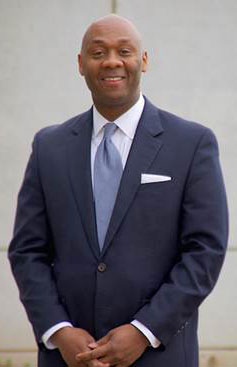
By DeVone Holt
For the last six years, I traveled the nation as a member of the executive leadership team for America’s largest and most comprehensive workforce development company.
However, on May 13, I gave up my frequent flyer status to join Goodwill Industries of Kentucky as the organization’s vice president of external affairs.
And while I’m excited to have my feet back on the ground in Kentucky, I am surprised at how many people question the decision I made to leave a successful for-profit company to join the staff of Goodwill.
Obviously, the perception most people have of Goodwill stems from the retail function of the organization, which for more than a century has successfully used its storefront facilities to receive donations from private citizens that are then sold to the public.
What most people don’t know is that Goodwill uses the resources generated from the donations it receives to fund workforce development programs that help people find work who may have disabilities, criminal backgrounds, previous drug addictions, bouts with homelessness or other life challenges.
Although Goodwill Industries of Kentucky has conducted its workforce development mission with little fanfare in recent years, its results have been profound.
In its last annual report, the organization shared that it worked with 776 businesses throughout the state to connect 3,344 people to jobs that, on average, paid $10.75 an hour. Most of those jobseekers were hired by employers that placed them on life-changing career pathways. However, as part of its workforce development commitment to disadvantaged Kentuckians, the retail stores at Goodwill Industries of Kentucky hired the remaining jobseekers to help them strengthen their work skills and develop a positive employment history.
Those are numbers and services that rival the efforts of any for-profit company that generates revenue for shareholders by connecting jobseekers to employers. The difference is, Goodwill doesn’t have shareholders. When we are successful at what we do it allows us to reinvest in our mission to help eradicate poverty in Kentucky in a way that benefits the entire state.
Unfortunately, the population we serve at Goodwill is often overlooked as a viable option for addressing the workforce challenges the state faces. Obviously, it is a much more intriguing proposition to recruit highly-skilled professionals to the state in order to fill six-figure-salary job openings at companies that relocate to the area.
But the reality is, with the state’s notable slow population growth in recent years, helping to restore and “up-skill” the people served in our workforce development programs will do more to sustain Kentucky’s economy by:
• Helping to instill the value of work in a demographic of people who, in many cases, have never been involved in the workforce
• Reducing the need for government benefit programs by putting more people in self-sustaining jobs that allow them to support themselves, their families and their communities
• Improving the productivity of Kentucky companies that collectively report a total of 150,000 job openings that desperately need to be filled
These are just a few of the ways Goodwill Industries of Kentucky is contributing to efforts to make the state more competitive and its citizens more marketable.
But more personally, they are also the reasons why when people respond to my recent change in employment by saying “Goodwill?” I proudly reply, “Yes! Goodwill.”
DeVone Holt is vice president of external affairs with Goodwill Industries of Kentucky.




















Add Comment